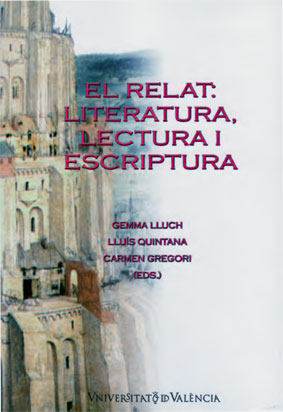El cànon literari en l’ensenyament secundari no obligatori valencià
DOI:
https://doi.org/10.7203/qf-elit.v18i0.3291Paraules clau:
ensenyament, literatura, cànon, llibre de text Resum
Resum
En aquest article analitzem, a través de diferents llibres de text publicats recentment al País Valencià, quina literatura s’explica a les aules de l’educació secundària postobligatòria (autors, obres, èpoques i tipus de text) i, el que és més rellevant, com s’ensenya. La reflexió sobre la controvertida qüestió del cànon i sobre els mètodes i recursos per a proporcionar una educació literària sòlida ens duu a reconéixer la necessitat d’ensenyar el cànon, entés com a proposta oberta i flexible, així com de salvaguardar el plaer lector també en aquests cursos.
 Descàrregues
Descàrregues
Descàrregues
Com citar
-
Resum593
-
PDF (Español)0
-
PDF157
-
PDF 302
Número
Secció
Llicència
 Este obra está bajo una licencia de Creative Commons Reconocimiento-NoComercial-SinObraDerivada 4.0 Internacional.
Este obra está bajo una licencia de Creative Commons Reconocimiento-NoComercial-SinObraDerivada 4.0 Internacional.
Tots els documents inclosos a OJS són d'accés lliure i propietat dels seus autors i/o institucions editores, i per tant, qualsevol acte de reproducció, comercialització, comunicació pública o transformació total o parcial necessita el consentiment exprés i escrit d'aquests.
________
Authors who publish with this journal agree to the following terms:
- Authors retain copyright and grant the journal right of first publication with the work simultaneously licensed under a Creative Commons Attribution License that allows others to share the work with an acknowledgement of the work's authorship and initial publication in this journal.
- Authors are able to enter into separate, additional contractual arrangements for the non-exclusive distribution of the journal's published version of the work (e.g., post it to an institutional repository or publish it in a book), with an acknowledgement of its initial publication in this journal.
- Authors are permitted and encouraged to post their work online (e.g., in institutional repositories or on their website) prior to and during the submission process, as it can lead to productive exchanges, as well as earlier and greater citation of published work (See The Effect of Open Access).




